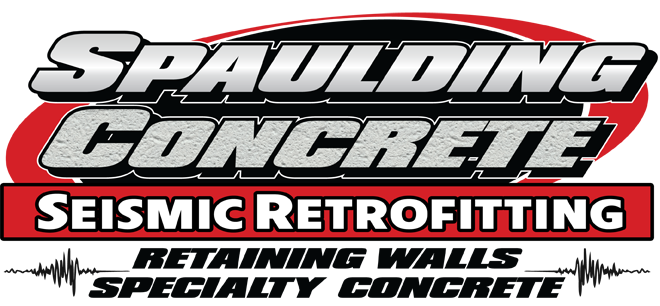What Makes A Good Concrete Driveway?
There are important requirements which your contractor should follow during construction to ensure that your concrete driveway looks good for several years to come. How well the long-term look and efficiency of your driveway is directly related to the nature of the workmanship and the materials that go into it. To help ensure a trouble-free driveway use the list below for proper construction details.
Place concrete at the right thickness
Thickness is the major factor (even more than concrete strength) in assessing the structural potential of a driveway. Place the concrete at a minimum of 4 inches thick. According to the Tennessee Concrete Association, raising the thickness from 4 inches to 5 inches will add about 20 percent to your concrete expense, but will also raise the load carrying capacity of your driveway by nearly 50 percent.
Always suggest thickening of the edges of the driveway by 1 or 2 inches to provide additional structural protection in the region most likely to be heavily loaded. The thickened sections should stretch 4 to 8 inches in from the bottom of the slab.
You can need a thicker driveway slab for your local soil conditions and weather patterns too. To get an expert recommendation, contact a nearby driveway contractor.
Rebar & Wire mesh tightening
The use of steel reinforcement will give your driveway additional structural ability and is especially necessary if the slab is exposed to heavy traffic. Reinforcement does not eliminate fractures, but if they do occur, it will help to keep them together.
The reinforcement can be either wire mesh or steel rebar 1⁄2-inch (# 4). Choose wire mesh for driveways with a thickness of 4 to 5 inches, and rebar for those 5 inches or greater. Place the rebar in a grid pattern with approximately 12-inch spacing between rows. Under the reinforcement in either case blocks should be used to keep balanced inside the concrete.
Synthetic fibers have also been shown to be helpful as a means of growing shrinkage cracks in driveways. Fibers won’t have structural strengthening
A Suitably Prepared Subgrade
Uniformity is the secret to a successful subgrade-one in both soil composition and compaction, providing adequate protection, maintaining even slab thickness, and preventing slab settling and structural cracking. Weak spots, such as dirt or crushed rock, should be removed and replaced with stronger material. Many western states have thick soils. Under these conditions, depending on the degree of expansiveness, 2 to 8 inches of crushed rock can be used as subgrade material. Consult a soil engineer if you are unsure of the soil characteristics in your field.
Don’t let the concrete be put on a bone-dry subgrade, the Tennessee Concrete Association recommends. Sprinkling the subgrade first to dampen it will keep the fresh concrete from wicking water out.
The most popular machines used for subgrade compaction of residential driveways are vibratory platform compactors and rammers.
The Right Combination of Concrete
Mix design can affect a concrete driveway’s efficiency and longevity. Learn all about building concrete driveway mixes to find out just what to say.
Placed joints correctly
To help avoid accidental cracking, a 4-inch-thick driveway slab will position the control joints at a maximum spacing of 10 feet. Although sporadic cracks are not usually a structural issue and do not shorten the driveway’s service life, they can be an eyesore. Always avoid joint patterns that create sectional rectangles or triangles. The width of test joints is important as well. Your concrete contractor will hand tool or saw them to a depth equal to a slab thickness of one-fourth (or 1 inch for a slab of 4 inches).
A separation joint will be built in addition to the control joints, where the driveway crosses a curb, garage floor slab, and other existing pavements. As part of his written request, ask the contractor to include a joint strategy.



Need a Flatwork Concrete to Update Your Patio, Driveway or Parking Area?
We’re here to transform your home! For over thirty years Spaulding Concrete has been providing flat surface concrete installations for sidewalks, city bike paths, driveways, and side driveway additions, commercial floors, parking lots, RV pads, steps, curbs, and gutters. We also specialize in site work repairs to existing cracked, damaged concrete. Specializing in the completion of our projects in an effective, timely and reasonable manner. In need of Flat Concrete installation for your Home or Commercial structure? To schedule your free quote, call or contact us today! We are proud to serve Orinda, Lafayette, Moraga, Pleasant Hill, Concord, Martinez, Pittsburg, Antioch, Brentwood and the surrounding areas
